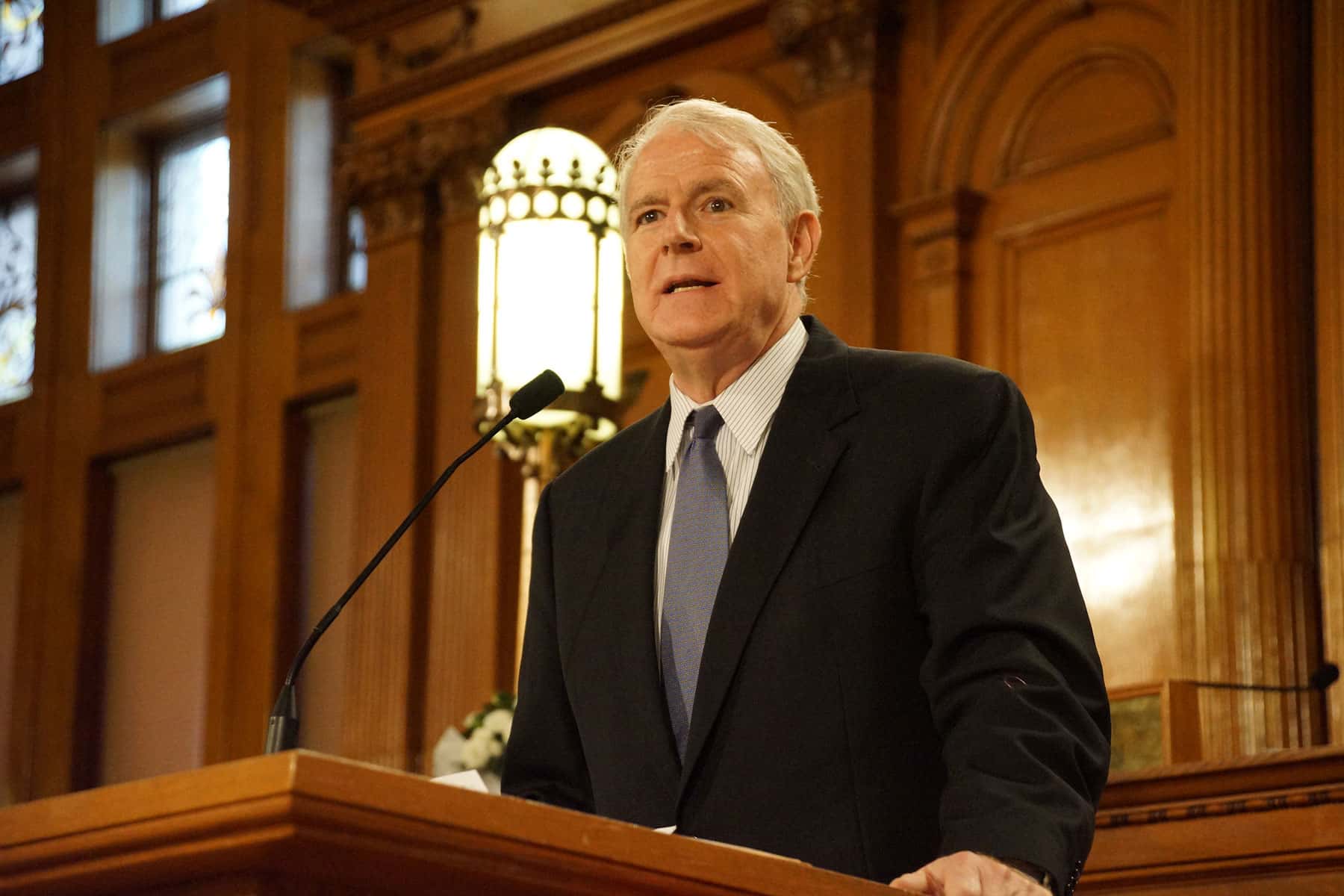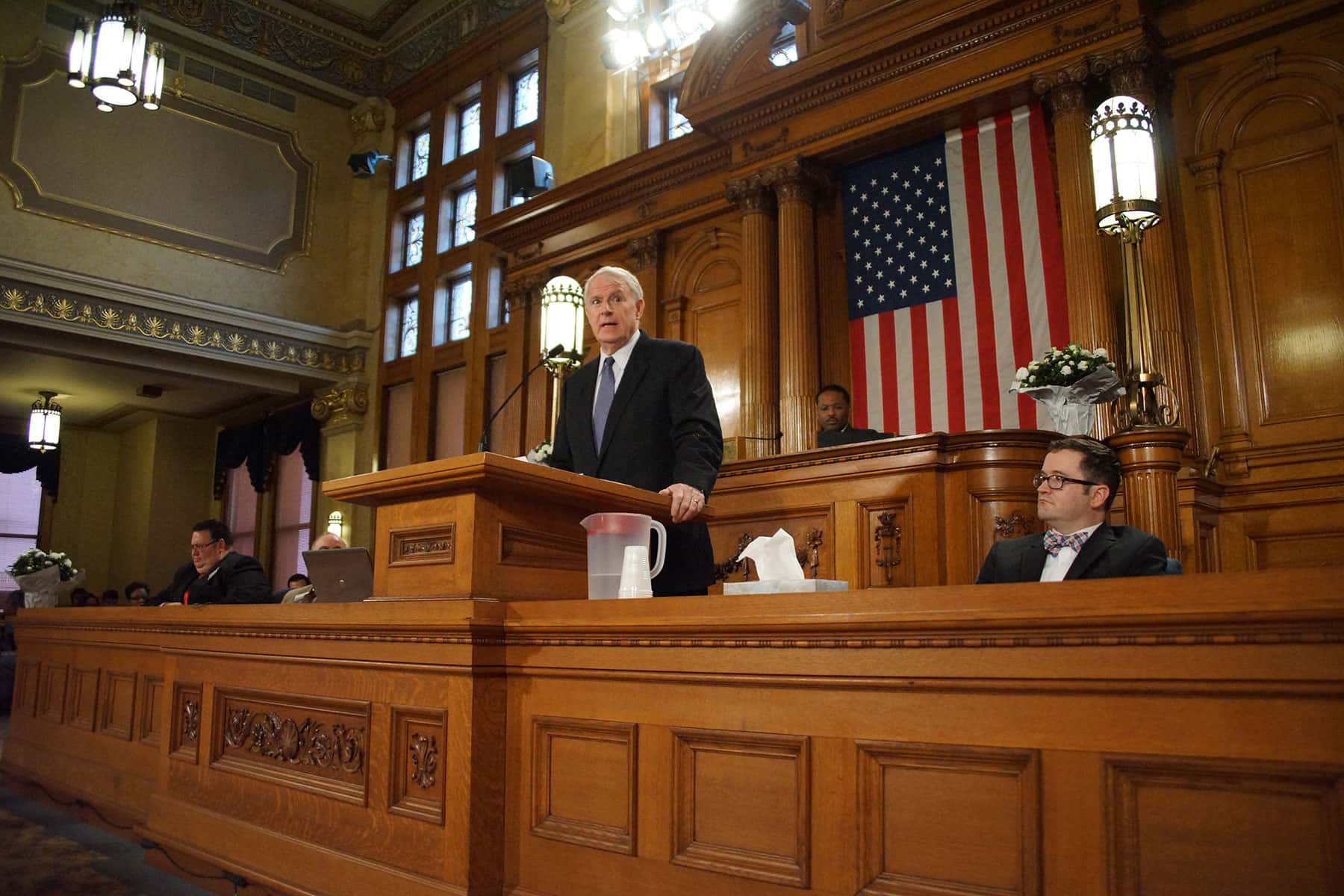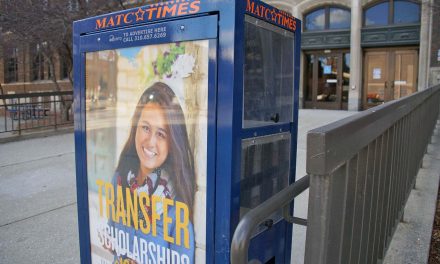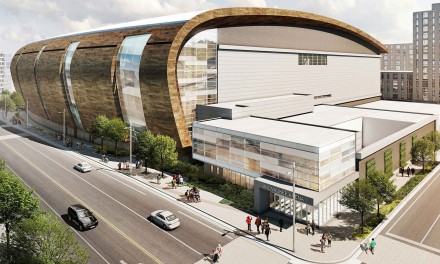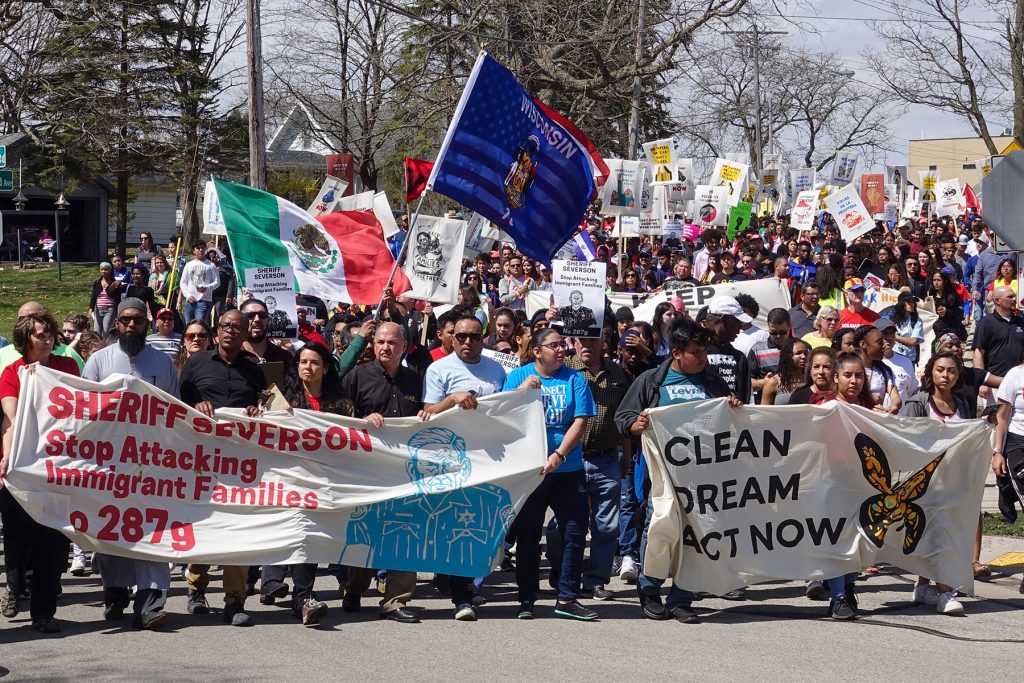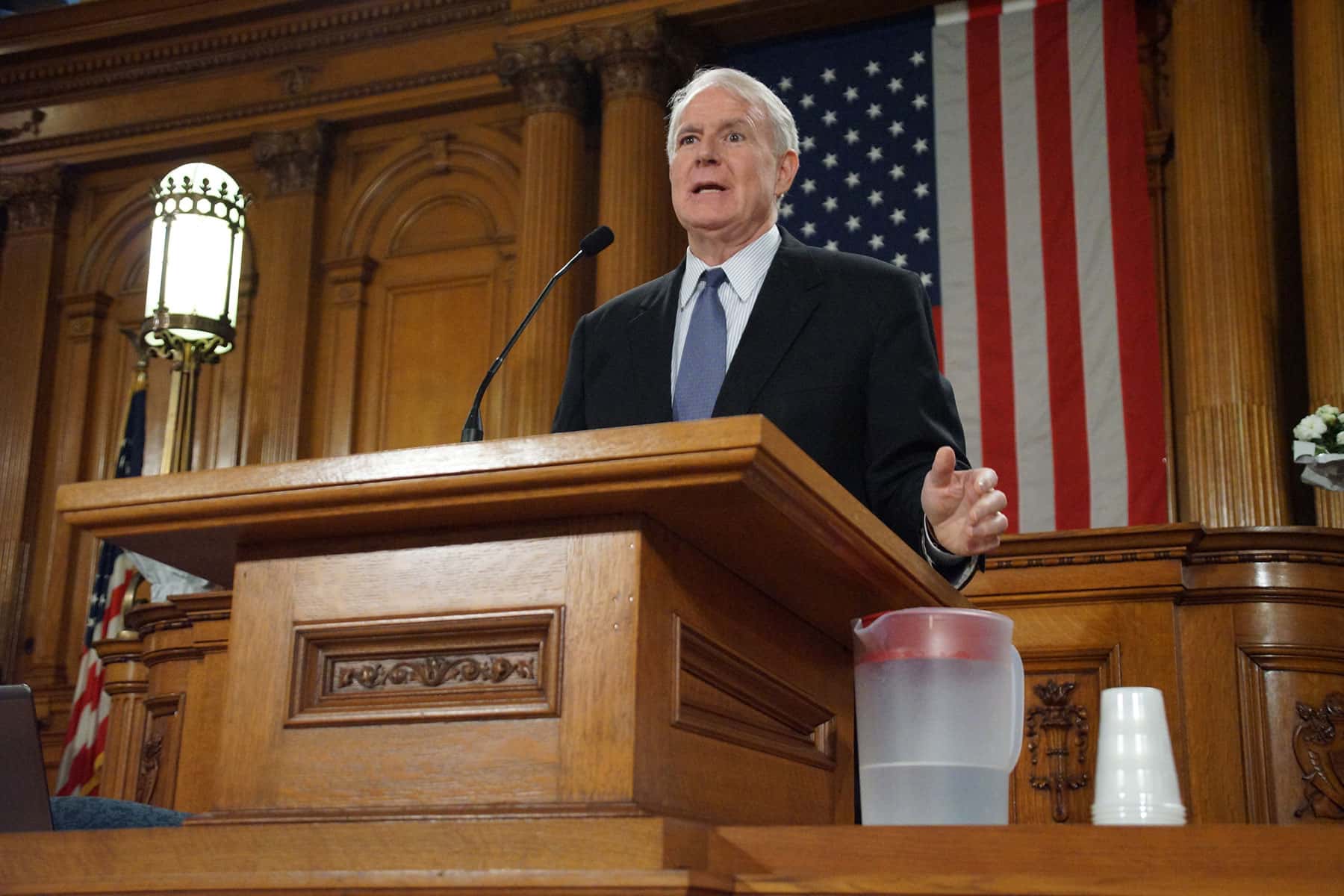
Mayor Tom Barrett presented his 2019 proposed executive budget to Common Council members on September 25.
Despite severe budget constraints created by the state, the budget proposal includes significant additional resources to address shared priorities among City officials, community leaders and residents.
Among the highlights of this year’s budget is a significant investment in the City’s lead poisoning reduction programs and lead service line replacements. A continued focus on improving housing opportunities, public safety, libraries and other City services were also emphasized throughout the proposal.
“The budget squeeze we face – compounded by pensions, public safety costs, and disregard from Madison – seems daunting,” said Mayor Tom Barrett. “Yet, great things are taking place across all Milwaukee. Enterprising people, community-minded neighbors, and organizations that work to make our city better, are all defining the future of our Milwaukee. This budget supports their vision – and our vision – for a city that is inclusive, safe, and economically vibrant. ”
Mayor Barrett emphasized a resounding commitment to the health and safety of residents by adding staffing resources to the Health Department’s Childhood Lead Poisoning Prevention Program. This budget also includes an investment of $20 million for efforts to reduce lead risks and abate lead problems. In 2019, Milwaukee Water Works will support the work of the Health Department by continuing to scale up its lead service line replacement program with plans to remove 1,000 more lead connections. Positions in the Department of Neighborhood services (DNS) were also created to conduct more lead abatement inspections in homes.
“Children in Milwaukee are safer, and the hardworking front-line workers at the Health Department deserve credit for that,” said Mayor Tom Barrett. “We all know there have been problems in the Health Department, but we are refocusing our efforts to make sure the department continues to move in a positive direction.”
The Strong Neighborhoods Plan remains a priority and will support the Mayor’s 10,000 affordable households commitment announced earlier this year. $9.6 million is included in this budget to continue the initiative’s efforts toward improving the accessibility, affordability, and quality of housing options for Milwaukee residents. An additional $500,000 is included for strategic site acquisition to maintain affordable housing in areas facing potential displacement.
In regards to public safety, Mayor Barrett touted the work of both the Milwaukee Fire Department and the Milwaukee Police Department. In the Fire Department, two positions were added to the community paramedic program to continue efforts to connect individuals with the appropriate medical resources and reduce call frequency to 911. In order to support diversity recruitment efforts in the police department, Mayor Barrett proposed adding one position to the Fire and Police Commission recruitment team.
This year Milwaukee Public libraries saw the construction of the Mitchell Street Library and the ground breaking of the Good Hope Library. The 2019 budget will continue the successful strategy of mixed-use library developments for Capitol Drive and Martin Luther King libraries. “Libraries are not a luxury. They’re valuable resources that improve lives, create economic opportunity and bring neighborhoods together. Libraries are a fundamental part of the fabric of our community,” said Mayor Tom Barrett.
The anticipated start of operations for the streetcar later this year was also mentioned in the Mayor’s remarks. The project is on time, and on budget with no direct impact on the city’s operating budget or tax levy.
In the coming weeks, aldermen will review the Mayor’s budget and consider amendments. Next year’s financial plan will be finalized in November.
2019 Budget Address, as delivered by Mayor Tom Barrett in the Common Council Chambers on September 25, 2018
President Hamilton, Council members, and City officials, I want to begin our budget preparation with two formidable challenges.
First, our revenue remains constrained. Unlike other major American cities, the only significant tax we collect, only significant tax we are allowed to collect is the property tax, and that tax is capped by state law.
As you know, State shared revenue was created to have the state and municipalities together benefit from the revenue generated from the state. Unfortunately, the state seems to have forgotten the word “shared.” For years, as state revenue has continued to climb, shared revenue has remained unchanged, or even been reduced. The state has tied our hands.
The second major challenge is pensions. While our Employee Retirement System is well- funded compared to other large cities, the costs continue to mount. 77% of these costs are attributable to police and fire sworn personnel. I’m sure you’ll agree we have a responsibility to fund that.
We have an obligation to our employees, our retirees, and, most importantly, to our taxpayers to responsibly manage the city contributions to the pension fund. That means making our full contribution this year and preparing for future increases in the city’s contribution.
But, there’s also some good news on the pension front. In last year’s budget, the actuarial analysis called for a payment of $83 million to the pension fund. Working together, and I genuinely thank you for working together, we responsibly put that money aside.
Now, in the past few months as data became available, the actuary estimated the pension payment for 2018 and the following years to be $13.4 million lower. Yes, that’s good news and there’s more. Since the City paid $83 million in January to take advantage of early payment savings, and the revised contribution estimate was not available until June, a $13.4 million credit now exists in the pension fund.
As a result, the 2019 budget for the employer pension contribution will be reduced by $13.4 million and that amount will be put into the pension reserve account. This action is essential to stabilize future City budgets. Again, the goal is to put this money aside. We don’t want to have a jolt in the budget.
The reason we are putting the money in the Pension Reserve Account is we are still an outlier with our presumed rate of return. Most cities have assumed a lower rate of return. We can all agree no one wants to be in a situation where we are not meeting our obligations to our employees and retirees.
The budget I am presenting is very tight, but the good news is we have avoided drastic cuts.
As you recall, last year we had to make cuts that affected the Fire Department. For next year, I am happy to report we are able to maintain all equipment and staffing. With police, we are able to add 10 positions, and we will be hiring 100 new officers. We are fully funding the Milwaukee Police Ambassador program.
In 2019, our property tax levy is up 2.4%, and combined with a modest increase in fees, a typical homeowner can expect to pay a little less than an additional $50 next year.
When we are making decisions for our city, the health and safety of our residents are paramount.
That’s why I am adding resources to the Health Department where administrative and program lapses have failed Milwaukee residents and tarnished the department’s reputation. With my appointment, and your confirmation of Commissioner Jeanette Kowalik, the Health Department is on track to address problems and improve accountability.
My budget adds new positions to the Childhood Lead Poisoning Prevention Program. This coincides with a renewed commitment to all aspects of lead safety. Testing, prevention and intervention are components of the effort. This budget includes an investment of $20 million for reducing lead risks and abating lead problems.
The number of children with high levels of lead in their system has fallen significantly over the past 13 years. Children in Milwaukee are safer, and the hardworking front-line workers at the Health Department deserve credit for that. We all know there have been problems in the Health Department, but we are refocusing our efforts to make sure the department continues to move in a positive direction.
And while lead safety has dominated our discussions about the Health Department in recent months, there are many other aspects of its work that are vital for our city’s public health and safety.
We count on the department to protect us from communicable disease, increase food safety, and reduce infant mortality. The Health Department is also the home to our Office of Violence Prevention and the Blueprint for Peace. This budget supports all of these efforts. And we need to continue to support all of the good people who have dedicated their professional lives to the Health Department.
Commissioner Kowalik has made a commitment, to me and to you the Council, to be forthcoming and direct about the work of her department. She welcomes appropriate oversight. Her approach is renewing my confidence in the Milwaukee Health Department.
Complementing the work of the health department, in 2019 Milwaukee Water Works will continue to scale up its Lead Service Line Replacement program with plans to remove 1,000 more lead connections. This continues its multi-year trend of increasing the number completed.
For the sake of efficiency and productivity, we will use water works employees to do much more of this work. This new approach will reduce the overall cost per project and add 15 new water works employees.
Lead inspection positions, created in the Department of Neighborhood Services earlier this year, are also funded in this budget. And, Department of Neighborhood Services will take on additional work overseeing downspout disconnection in multi-unit residential properties.
In the Fire Department, the community paramedics program is working to connect individuals with the appropriate medical resources avoiding frequent calls to 911. This is a great program and if you haven’t heard about it, I encourage you to ask the fire department. This program makes home visits to frequent 911 callers to reduce the times they call. Anyways back to the budget. This budget adds to the community paramedic unit benefitting individuals and making better use of Fire Department resources.
Under Fire Chief Mark Rohlfing, the Fire Department exceeds national standards in response times. I’m confident that will continue under his leadership.
Police Chief Alfonso Morales has set a direction in the Police Department that prioritizes community interaction and transparency. Combined with the resources in this budget, that approach can lead to a safer community.
I’ll continue to work with, and push when necessary, the Fire and Police Commission to explore creative recruitment methods that produce police officers and fire fighters who reflect the diversity of our City. Our recent success is encouraging and I’m pleased it will work to make our public safety ranks look more like our community.
Ten years ago the global financial crisis devastated the economy, and, with that crisis, homeowners were thrown into foreclosure, taxes went unpaid, and shady landlords neglected their properties.
As a community, we are still digging out. In some neighborhoods property values have yet to recover. Too many of our low income residents lack suitable housing.
During most of the past decade, my Strong Neighborhoods Plan navigated the influx of tax- foreclosed properties, worked with owners to maintain their properties, and advanced opportunities for new owner-occupants to invest in our neighborhoods.
On a positive note, the number of newly acquired tax-foreclosed properties has stabilized and since 2007, we have sold more than 3,000 tax foreclosed properties – and since we have sold those properties, the new owners have paid more than $10-million in property taxes. Beyond the impact on the tax base, these buildings are occupied, and providing homes for families.
Strong Neighborhoods remains a priority, and the initiative is evolving. As part of that, we are directing additional efforts toward the accessibility, affordability, and quality of housing options for Milwaukee residents.
I talked about my 10,000 Households initiative earlier this year. It’s our effort to positively impact housing over the next decade. We are identifying resources, engaging partners, and working to improve the options for lower-income Milwaukee residents.
Great things are happening throughout Milwaukee. And some of those come from investments we’re making. Just last week we broke ground on the new Good Hope Library, which follows our successful mixed-use library development model. My budget includes allocations for the new construction of the Capitol Drive and Martin Luther King libraries as well.
Libraries are not a luxury. They’re valuable resources that improve lives, create economic opportunity and bring neighborhoods together. Libraries are a fundamental part of the fabric of our community.
City grants to local businesses leverage millions of dollar annually in business investment throughout Milwaukee. This budget funds one-million dollars in the Commercial Investment Program, an effort that includes façade grants and other support for Milwaukee business growth.
We are also developing a new type of partnership to assist established businesses needing interior repairs. I have directed my administration to work with the Common Council to maximize the effectiveness of these grants to long-established businesses.
We’re getting ready to start operations for our street car. We will be on time, and on budget. There’s no direct impact on the city’s operating budget, but city employees have done an excellent job bringing us to this point. Milwaukee residents and visitors will have a great new transportation option. And already, developers and property owners are making investments along the route. Whether you support the streetcar or not, ride it. It’s here. Let’s make it a success. It will be free to ride for the first year through a sponsorship with Potawatomi Hotel & Casino.
Strong commerce in Milwaukee generates tax revenue for the State of Wisconsin, yet how we fund basic city services is highly restricted by the State. Shared revenue is frozen, property taxes tightly limited, and service fees restricted.
The State has created a situation that is fundamentally unfair. Thousands and thousands of people commute daily to Milwaukee from surrounding communities and visitors from out-of- town stay in our hotels, make millions of visits to local attractions, and enjoy our public spaces. Yet, the State in effect says they should contribute nothing to pay for police and fire protection or local streets? Nothing. Absolutely nothing.
After the New Year, the State of Wisconsin will assemble its biennial budget, offering another opportunity to restore fairness to shared revenue. So, next year, the State should revisit shared revenue and actually share the growing revenue the state takes in. And the state also needs to revisit the issue of a local sales tax which would need to be approved by local referendum – to fund crime prevention and public safety services.
Our long term obligations including core infrastructure, pension and debt are also straining our budget.
Core infrastructure continues to be a priority in my budgets. This year, we are improving 25 miles of major and local streets. We will also replace or line 23 miles of sewers.
Together, over the years, we’ve worked to make sure our pension obligations are met honestly and responsibly. That approach guides the 2019 approach to city pensions. Looking forward, we are going to be more conservative about our expected rate of return, as I states earlier to bring us in line with accepted practice.
This approach comes with an important caution. We have to have reserves in place to avoid budget crises in future years. That’s why, as I mentioned earlier, this budget includes $13.4 million to be placed in the reserve account.
As tempting as it might be to tap into that money now, it would be an enormous mistake with dangerous implications for future city budgets.
Acting responsibly is our only choice.
City borrowing must be done thoughtfully so that it does not add to the existing structural budget issues. Higher borrowing translates into higher debt service payments that lead to reduced city services. Every property tax dollar we spend paying down debt is a dollar not available for libraries, firefighters, and public health.
I’m proud that together we have worked to keep our debt costs stable. You deserve a lot of the credit. Controlling borrowing begins with a solid capital improvements plan that is based on clear City priorities. Our budgets have consistently maintained or increased street paving and repair and invested in neighborhoods and libraries.
We are not in a position to borrow more now without creating unacceptable risk to future budgets.
The budget squeeze we face – compounded by pensions, public safety costs, and disregard from Madison – seems daunting. Yet, great things are taking place across all Milwaukee. Enterprising people, community-minded neighbors, and organizations that work to make our city better, are all defining the future of our Milwaukee.
This budget supports their vision – and our vision – for a city that is inclusive, safe, and economically vibrant.
Thank you.
Tom Barrett
Mayor, City of Milwaukee
© Photo
Lee Matz

